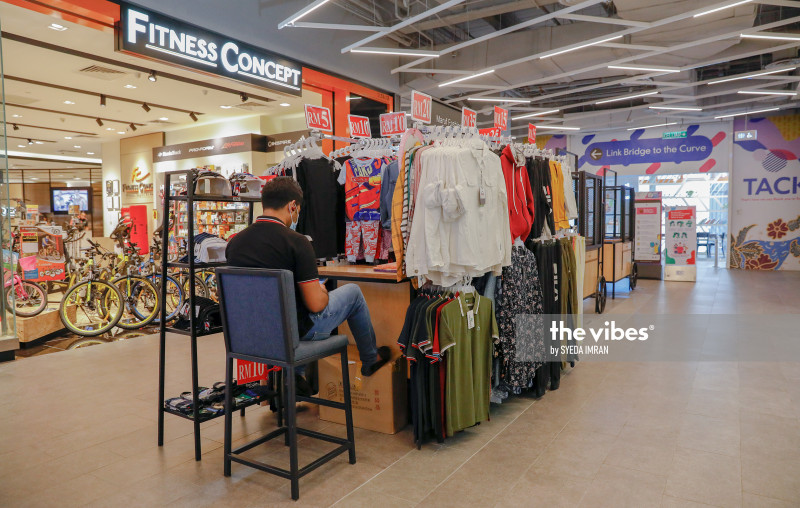 The government needs to clarify its guidelines, criteria for the campaign to be effective
The government needs to clarify its guidelines, criteria for the campaign to be effective
9 November 2020
THE Domestic Trade and Consumer Affairs Ministry has initiated a follow-up to the Buy Malaysia campaign first launched in 1984 and relaunched during the financial crises of 1998 and 2008.
The current follow-up to encourage consumers to buy made in Malaysia products is to help local entrepreneurs during the economic crisis consequent on the ongoing Covid-19 pandemic.
Proponents of economic liberalism and free-market capitalism baulk at such protective measures.
However, as noted by Nobel laureate Paul Krugman in his opinion piece in the New York Times supporting the US Buy National Campaign during the 2009 financial crisis: “These are not normal conditions. We’re in the midst of a global slump, with governments everywhere having trouble coming up with an effective response... Don’t say that any theory which has good things to say about protectionism must be wrong: that’s theology, not economics.”
Malaysians will surely support the ministry’s efforts and treat buying Malaysian made products as an important determinant of their purchasing behaviour.
Qualifying products
The ministry has determined that for the purpose of this Buy Malaysia campaign, “the product must be manufactured in Malaysia and contain at least 51% of the material/ content and local products produced shall involve the manufacturing process (manufacturing activity)”.
The guidelines state that products imported in large quantities and packaged, or imported semi-knocked down and packaged or assembled in the country, do not qualify.
Implications of the criteria used
The ministry’s determination gives the impression that the campaign excludes Malaysian products not subject to manufacturing. Thus would be excluded are agricultural products (fruits, vegetables, meat and other farm produce) and products either fished or mined in Malaysia or products that have undergone minimal processing.
Minimal processing would include drying, peeling, trimming, cutting, washing, disinfection, rinsing and, packing and labelling. Local handicraft would also be excluded under this definition.
This would be unfortunate since the government emphasises handicraft production as crucial for supplementing the income of the rural poor.
Many of these excluded products are also, under the various bilateral and multilateral free trade agreements (FTAs) that Malaysia is a party to, considered wholly obtained in Malaysia and entitled to a Malaysian Certificate of Origin and enjoy preferential treatment in the countries to which they are exported.
Moreover, hypermarkets in Malaysia that provide a designated place for made in Malaysia products do treat these products as Malaysian.
In a written response to a questionnaire conducted for this opinion piece, the ministry has stated that local produce such as greens and perishable items may also apply for inclusion in the campaign.
The ministry needs to clarify this on its website and in the media. It has specified that to qualify, products need to have “51% of the material content”.
This is inconsistent with our international obligations under the FTAs Malaysia has entered into. Most of the FTAs only require 40% local content; the exception is the Malaysia-India FTA that requires even less, just 35% local content.
The lower local content requirement is to encourage foreign direct investment, assist micro, small and medium scale industries and increase Malaysian exports.
The ministry may wish to reconsider its local content requirement.
Need to reach a wider audience
For the current campaign, the ministry is collaborating with 13 major retailers and three major e-commerce platforms.
Clearly, this has to be expanded and the campaign has to become nationwide and supported by all retailers.
Since the Covid-19 pandemic and the consequent movement control order, retailers and consumers have moved to online platforms and there has been a marked increase in trading in these platforms, including in Malaysian products.
The limited data available is inadequate to help determine whether there has been a shift in consumer purchasing behaviour from foreign goods to Malaysian goods. Nonetheless, the campaign has to be intensified so as to achieve its objectives. Malaysians must, whenever possible, buy Malaysian products so that more of our producers and retailers can thrive and more of our fellow citizens can be employed.
No law defines Made in Malaysia
Participation in the campaign is not mandatory. Use of the logo of the campaign without certification by the ministry is an offence.
However, use of the Made in Malaysia appellation by those not participating in the campaign is not an offence; and for good reason.
Malaysia, unlike many other countries, does not have a law that defines what Made in Malaysia means. – The Vibes, November 6, 2020
Prof Emeritus Datuk Sothi Rachagan is a former dean of Universiti Malaya’s Law Faculty and president of the International Association of Consumer Law.
Source: https://www.thevibes.com/articles/opinion/5040/intensify-buy-malaysia-campaign-sothi-rachagan
